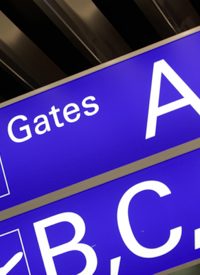
What do you do? Do you stare at the TSA’s agents with an expression of disgust? Do you begin commenting about the unconstitutionality and criminality of the TSA’s procedures?
If so, you could end up being targeted for additional screening, investigated by local law enforcement, and prevented from boarding your flight. You see, a person who is “very arrogant and expresses contempt against airport passenger procedures” may be considered “high risk” by the TSA under its Screening Passengers by Observation Technique (SPOT) program.
CNN reports that it has obtained a list of about 70 “behavioral indicators” that are used by TSA behavior detection officers to determine which passengers exhibit “behaviors and appearances that may be indicative or stress, fear or deception,” which in turn require them to be more thoroughly screened. One of these indicators is having an “arrogant” attitude and griping about the TSA’s screening process. Of course, as Infowars.com remarked:
It seems quite “arrogant” that TSA would assume the authority to grope passengers, ignore the 4th Amendment and castigate those warning that body scanners pose radiation risks or that terrorism is a hoax [or at least an excuse] for social control. Arrogance is government usurpation of undue powers, not ordinary people expressing common sense opposition to TSA practices.
Likewise, the American Civil Liberties Union’s Michael German, a former FBI agent, told CNN: “It’s circular reasoning where, you know, I’m going to ask someone to surrender their rights; if they refuse, that’s evidence that I need to take their rights away from them. And it’s simply inappropriate.”
The TSA insists that simply displaying disdain for its screening procedures would not be sufficient to subject a person to extra screening. The agency told CNN “that no single indicator, taken by itself, is ever used to identify travelers as potentially high-risk passengers. Travelers must exhibit several indicators before behavior detection officers steer them to more thorough screening.”
The TSA also claims “its security programs are informed by real-world situations and intelligence,” writes CNN. The agency cites the fact that one of the 9/11 hijackers, Mohammed Atta, had a negative reaction to being told he had to check in on both legs of his flight and that the alleged “20th hijacker” was prohibited by an immigration agent from entering the United States because of his “arrogant behavior,” according to CNN. But it is also the case that “none of the checkpoint supervisors [on 9/11] recalled the [successful] hijackers or reported anything suspicious regarding their screening,” said the 9/11 Commission report; and, notes CNN, “an al Qaeda training manual instructs members to blend in,” which would mean docilely accepting the TSA’s intrusive procedures like most American air travelers.
In addition, the Department of Homeland points to a study supposedly demonstrating the SPOT program’s success in identifying high-risk passengers; but both Philip Rubin, a member of the study’s Technical Advisory Committee, and the Government Accountability Office say the study failed to show what the TSA claims. CNN reports that the GAO said that the “TSA’s records are incomplete” and that there were “23 occasions in which 16 individuals — people later charged with terrorism-related activities — passed through high-threat airports” but were not identified and subjected to additional screening. Furthermore, says CNN:
Members of Congress also expressed concern about the number of “false positives” — people flagged for additional screening that resulted in nothing being found. For every person correctly identified as a “high risk” traveler by (the behavior detection officers), 86 were misidentified, [DHS official Larry] Willis said. At random screening, for every person correctly identified, 794 were misidentified.
As always, ineptitude and failure in a government program can only result in one thing: The program and its budget will be expanded. Thus, SPOT, “originally intended to look only for suspected terrorists … now also seeks to ferret out possible criminals in airports,” according to CNN. Yet even its criminal detection is hardly a rousing success. CNN writes: “[Rubin] said that while large numbers of people were screened, very little criminal activity was detected, and the numbers may not be statistically significant.” Nevertheless, President Barack Obama wants to add another 175 behavior detection officers to the TSA’s already 3,000-strong ranks, with a concomitant budget increase. “The TSA,” says CNN, “is expected to spend a total of $1.2 billion on the program over the next five years.”
That’s $1.2 billion down the hole of “security theater” whose purpose increasingly appears to be locating small-time lawbreakers to give the appearance of success — 39 percent of the people arrested under SPOT during its first four-and-a-half years were hauled away because they were illegal aliens — rather than actually protecting the public from likely terrorists, something the TSA has failed to do on multiple occasions. Imagine if the TSA were abolished and all that money left in the private sector to develop effective, minimally intrusive airport security processes instead of the ineffective, top-down, one-size-fits-all approach of the TSA. Travelers might once again be able to fly the friendly (and safe) skies — and fearlessly speak their minds while doing so.



